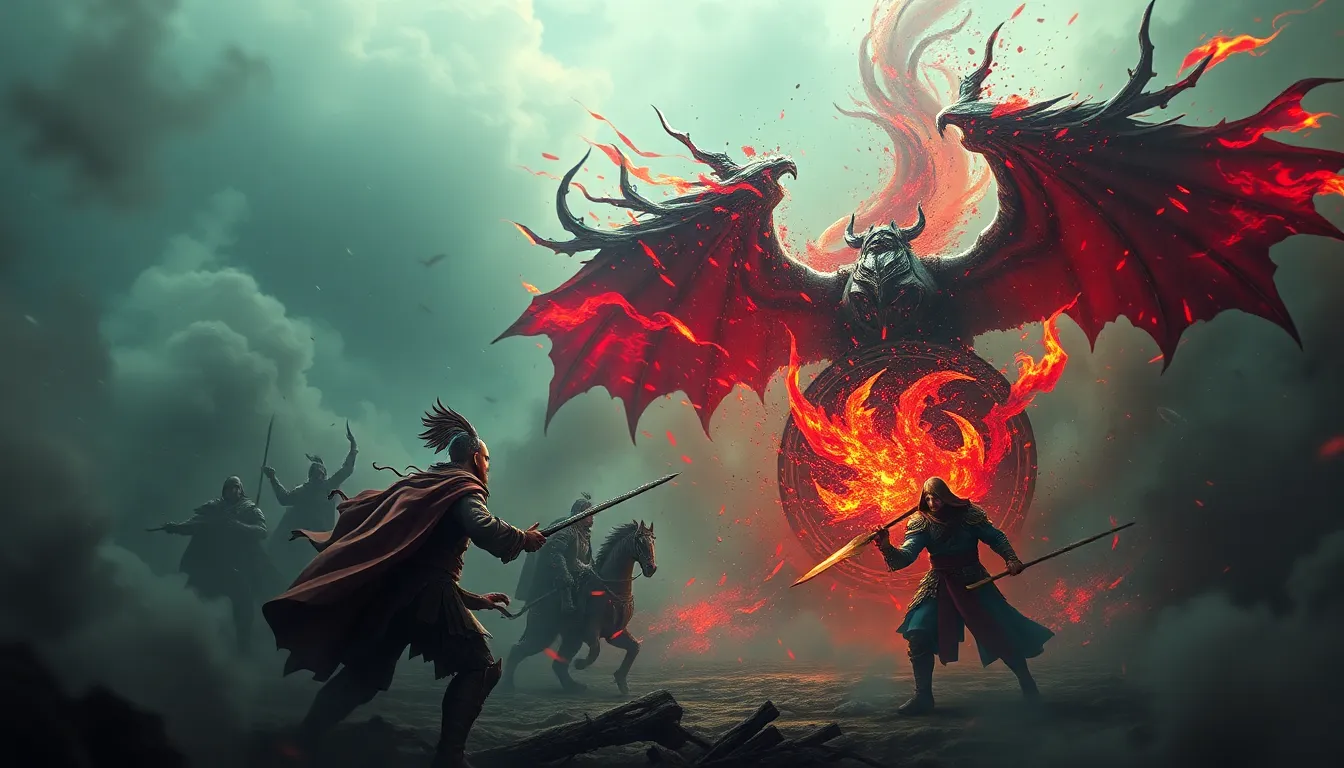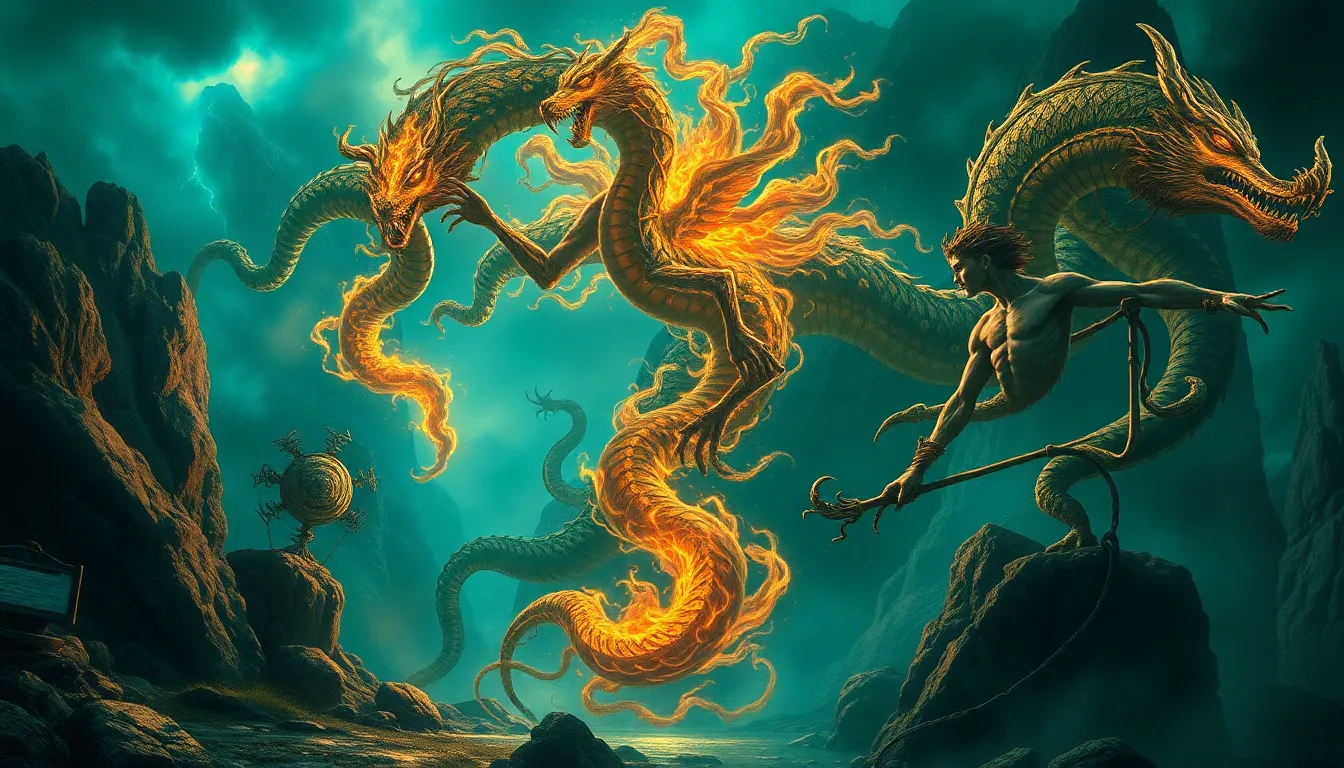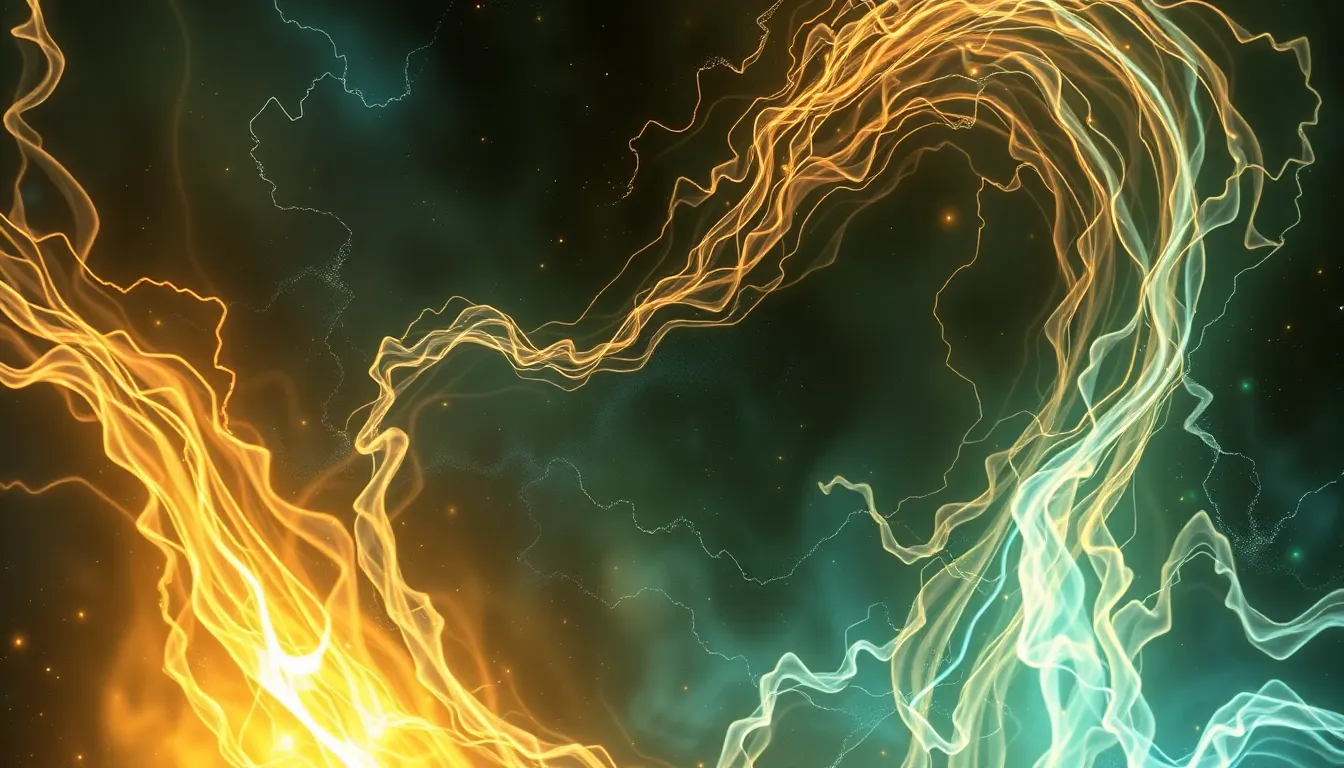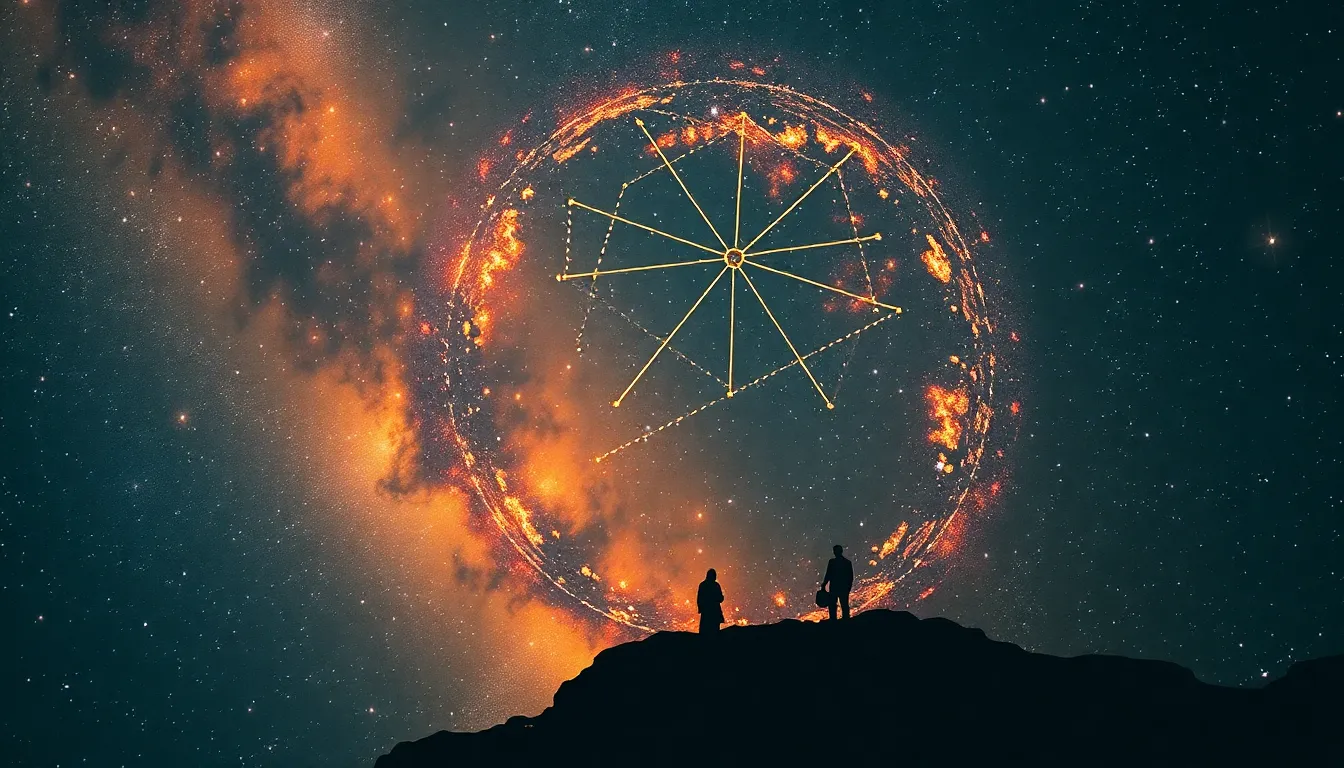Blood and Valor: The Fiercest Battles in Mythology
I. Introduction
Mythology serves as a window into the beliefs, values, and traditions of cultures around the world. It encapsulates the stories that shape societies, often reflecting their struggles, aspirations, and moral frameworks. Among the most gripping elements of mythology are the battles that define the destinies of gods, heroes, and humanity itself. These legendary conflicts not only highlight the valor and might of their characters but also serve as allegories for the human experience, illustrating our capacity for both destruction and heroism.
This article aims to explore some of the fiercest battles across various mythologies, delving into their significance and the lessons they impart to us today.
II. The Role of War in Mythology
War is a pervasive theme in mythology, often symbolizing the struggle between order and chaos, good and evil. Through these legendary conflicts, cultures articulate their understanding of human nature and the universe.
- Thematic significance of war: War in myths frequently represents existential battles—between life and death, civilization and barbarism, or divine order and chaos.
- Representation of key figures: Gods, heroes, and monsters often take part in these epic confrontations, showcasing their strengths, weaknesses, and moral complexities.
- Moral lessons: Legendary battles frequently convey cultural values, teaching lessons about bravery, sacrifice, and the consequences of hubris.
III. Greek Mythology: The Trojan War
The Trojan War, one of the most celebrated conflicts in Greek mythology, is rooted in themes of love, honor, and revenge. It began with a seemingly trivial event—a beauty contest among goddesses—that escalated into a decade-long siege.
Key figures: Central to this war are characters such as Achilles, the mightiest Greek warrior; Hector, the noble Trojan prince; and Helen, whose abduction sparked the conflict.
Major events: Key moments include the wrath of Achilles, the Trojan Horse deception, and the climactic duel between Achilles and Hector. Each event reveals not only the brutality of war but also the personal stakes involved for each character.
The Trojan War’s impact on Greek culture is profound, influencing literature, art, and philosophy for centuries. Works like Homer’s “Iliad” and “Odyssey” continue to resonate, serving as foundational texts in Western literature.
IV. Norse Mythology: Ragnarok
Ragnarok, the prophesied apocalypse in Norse mythology, signifies the ultimate battle between gods and giants, heralding the end of the world as it is known.
Key combatants: The battle features major figures such as Odin, the all-father; Thor, the god of thunder; and Loki, the trickster. The giants represent chaos and destruction, challenging the order established by the gods.
The apocalyptic battle: Ragnarok is characterized by cataclysmic events, including earthquakes and floods. The battles lead to the deaths of many gods, fundamentally changing the cosmos.
This myth has been interpreted in various ways in modern culture, influencing literature, films, and even video games, serving as a metaphor for renewal and rebirth after destruction.
V. Hindu Mythology: The Kurukshetra War
The Kurukshetra War, narrated in the Indian epic “Mahabharata,” is a monumental conflict between two branches of a royal family, the Pandavas and the Kauravas.
Major figures: Central characters include Arjuna, the reluctant warrior; Krishna, his divine charioteer and guide; Duryodhana, the ambitious Kaurava prince; and Bhishma, the venerable granduncle.
Philosophical dilemmas: The war raises profound moral questions about duty, righteousness, and the nature of justice. Arjuna’s internal conflict about fighting against his own kin illustrates the complexities of dharma (duty).
The war’s impact extends beyond the narrative; it has shaped Indian philosophy, emphasizing the importance of ethical conduct in the face of conflict.
VI. Celtic Mythology: The Battle of Mag Tuired
The Battle of Mag Tuired is a pivotal event in Irish mythology, showcasing the Tuatha Dé Danann’s struggle against the Fomorians, a race of monstrous beings.
Key figures: Heroes like Lugh, a master of skills, and the formidable Fomorian leader Balor play crucial roles in this epic clash.
Themes of sacrifice and heroism: The battle reveals themes of sacrifice, as many heroes give their lives for the protection of their people, and heroism, as characters display remarkable bravery in the face of overwhelming odds.
This battle has left a lasting legacy in Irish folklore, symbolizing the triumph of light over darkness and order over chaos.
VII. Egyptian Mythology: The Battle Between Horus and Set
The conflict between Horus and Set embodies the struggle between order and chaos in ancient Egyptian mythology, with Horus representing the rightful king and Set symbolizing disorder and tyranny.
Significance of the battle: This battle was not just a personal vendetta; it symbolized the struggle for cosmic balance and the rightful order of the universe.
The outcome: Horus’s victory over Set not only restores order but also legitimizes the divine kingship of the pharaohs in ancient Egypt.
The narrative has influenced Egyptian art and literature, serving as a foundational myth for understanding governance and morality in ancient society.
VIII. Mesopotamian Mythology: The Epic of Gilgamesh
The Epic of Gilgamesh is one of the earliest works of literature, chronicling the adventures and battles of Gilgamesh, a historical king of Uruk.
Overview of Gilgamesh’s journey: Throughout the epic, Gilgamesh embarks on a quest for immortality, facing numerous challenges and enemies, including the monster Humbaba and the Bull of Heaven.
Key themes: The epic explores themes of friendship, the human condition, and the inevitability of death, providing profound insights into the ancient Mesopotamian worldview.
The battles in the epic serve as metaphors for personal and communal struggles, making it a timeless reflection on the human experience.



